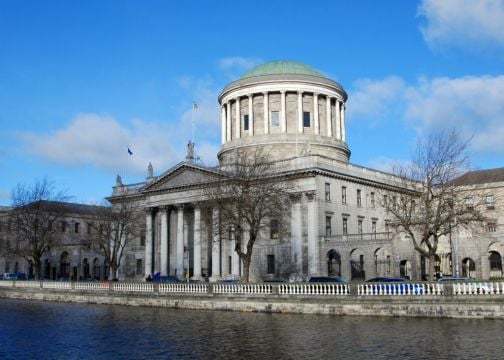A woman who sued a hospital over an alleged delay in diagnosing and treating a viral illness has settled her High Court action for €10 million.
The settlement, against St Vincent's Healthcare Group DAC trading as St Vincent's University Hospital, was reached without an admission of liability.
Leanne Doyle (35), from Glenview Road, Wicklow Town, Co Wicklow, suffered a “severe” brain injury and relies on a wheelchair, Aongus O Brolchain SC said.
She “lost all enjoyment” in the first five years of her daughter's life as a result of her injuries, he said.
The court heard Ms Doyle had a seizure around the time of her discharge from the National Maternity Hospital on July 1st 2014 following the birth of her daughter.
Viral illness
Ms Doyle was transferred to St Vincent's hospital, where, she claims, her viral illness was not properly managed and where there was an alleged failure to provide appropriate and timely intervention.
As an inpatient she underwent tests and treatment under the care of neurologists and, on July 3rd, a shadow was revealed on her brain in an MRI scan, the court heard. Further investigations were performed and she received various treatments.
Ms Doyle suffered another seizure, but the correct diagnosis of Herpes Simplex Encephalitis was not yet considered, it was claimed in her action.
Encephalitis
Mr O’Brolchain said it was his client’s case that a drug for treating encephalitis should have been administered on the evening of July 4th.
Aciclovir, the viral treatment, was not administered until the 9th, allowing the illness to “fester” for three to four days, he claimed.
In her High Court action Ms Doyle, who sued through her father, claimed the hospital failed to provide an appropriate and timely diagnosis.
The claims were denied, and the case was settled without admission of liability.
Mr O’Brolchain said it was the defendant’s case that the damage had already occurred by July 5th.

Ms Doyle remained in St Vincent’s until March the following year before being transferred to the National Rehabilitation Hospital. She stayed in a brain injury unit in Drogheda until early 2019, the court heard.
Ms Doyle would like to be able to live in the community, with supports, and it is her priority to help provide some care for her daughter, counsel added.
Mr Justice Paul Coffey said he had “very little difficulty” approving the settlement, which he described as “very reasonable”. He wished Ms Doyle and her parents well and reserved legal costs for a date in December.







